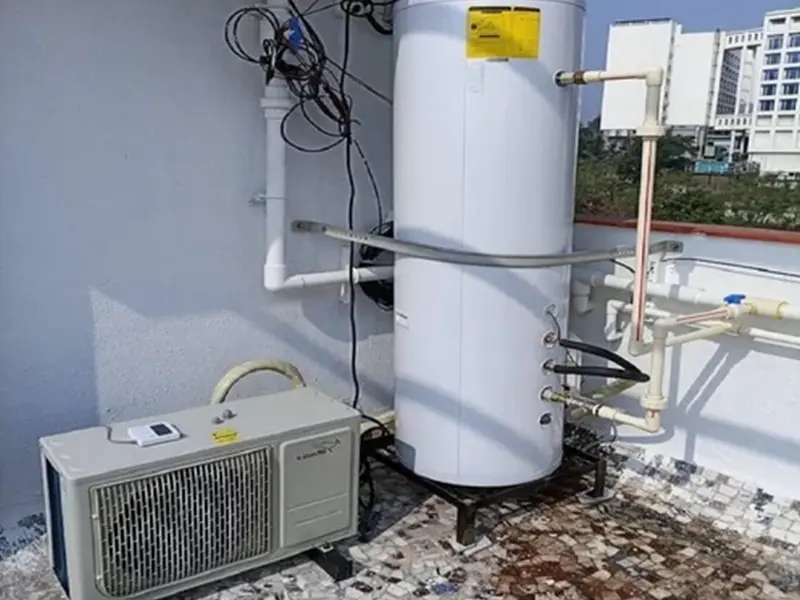Introduction
As energy costs rise and environmental concerns take center stage, homeowners and businesses are seeking efficient, sustainable solutions for heating and cooling. Air to water heat pumps have emerged as a compelling answer to these challenges, providing an energy-efficient alternative to traditional heating systems. This blog explores how air to water heat pumps work, their benefits, and why they are increasingly becoming the go-to choice for eco-conscious consumers.
How Air to Water Heat Pumps Work
Air to water heat pumps utilize the air outside to heat a home’s water supply, offering a dual function that includes heating living spaces and providing hot water. The system operates by extracting heat from the outside air using a refrigerant. This heat is then compressed to increase its temperature. Subsequently, it is transferred to water in the heating system’s radiators or underfloor heating.
The process involves three key components:
- Evaporator: Absorbs heat from the air.
- Compressor: Increases the temperature of the heat.
- Heat Exchanger: Transfers the heat to water, which circulates through the home’s heating system.
Addressing Heating Challenges
Air to water heat pumps provide solutions to several pressing issues:
Energy Efficiency: These systems are renowned for their efficiency. They can deliver three to four times more energy in heat than they consume in electricity. This translates to lower energy bills and reduced environmental impact, making heat pumps a cost-effective and green alternative to fossil fuel-based heating systems.
Carbon Emissions: As governments worldwide push for reductions in greenhouse gas emissions, air to water heat pumps offer a significant advantage. They produce fewer carbon emissions than conventional boilers and furnaces, aligning with global efforts to combat climate change.
Versatility and Space Saving: Unlike traditional systems that require separate heating and hot water systems, air to water heat pumps provide both. This reduces the overall footprint of home utilities and simplifies installation and maintenance.
Reliability and Longevity: These systems are known for their durability and can operate efficiently for up to 25 years with proper maintenance. This makes them a long-term investment for sustainable home heating.
Innovation in Compressor Technology: Leading brands like Copeland have revolutionized heat pump compressors. Copeland compressors are specifically designed for heat pump applications, enhancing reliability and efficiency. They can heat water to 60 degrees Celsius without additional heating, significantly reducing power consumption.
Economic Benefits
Investing in an air to water heat pump can result in substantial savings over time. By reducing dependence on conventional energy sources and leveraging the more stable prices of electricity (especially where renewable energy sources are increasing), homeowners can protect themselves against the volatility of fossil fuel markets. Additionally, many governments offer incentives, rebates, or tax credits for installing energy-efficient systems, which can further reduce the initial cost.
Special Features of Copeland Heat Pumps
Copeland stands out in the heat pump market with several unique features:
Advanced Condenser Technology: Unlike common plate type heat exchangers that can suffer from scaling and clogging, Copeland utilizes superior condenser technology that maintains efficiency and performance over time.
Market Leadership: Copeland is not only a top compressor supplier to various brands but also offers exclusive compressor technology in their own heat pumps, which are designed to meet specialized requirements and are not available to other manufacturers.
Local Manufacturing and Certification: Copeland heat pumps are proud to be the only ones in India that are both Make in India and Green Pro certified, ensuring high standards of quality and sustainability.
Verified Performance: With an NABL accredited laboratory, Copeland ensures that all performance data is accurate and reliable, giving consumers confidence in their investment.
Conclusion Air to water heat pumps are not just a heating solution but a smart, strategic response to the modern challenges of cost, comfort, and climate change. By adopting this technology, homeowners and businesses are not only ensuring efficient heating but are also contributing to a more sustainable future. With innovative advancements from companies like Copeland, consumers have access to top-tier technology that enhances the effectiveness and efficiency of their heating solutions.



